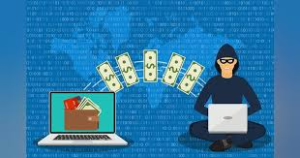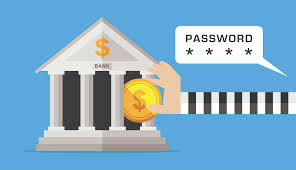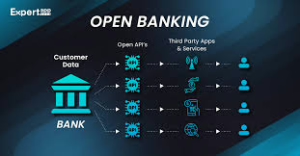In today’s digital age, a substantial portion of our daily activities unfold in the virtual realm. We conduct everything from professional meetings to job interviews, manage our finances, and arrange travel plans—all through the Internet. While this digital transformation has undeniably simplified our lives, it has also ushered in a host of security vulnerabilities that we must navigate with caution.

CERT NZ is receiving a rising number of reports regarding online security breaches among New Zealanders. Cybercriminals are devising increasingly intricate scams to steal credit card details and gain access to bank accounts, email communications, and social media profiles. Ensnaring oneself in one of these malicious attacks can lead to feelings of vulnerability, financial loss, and emotional distress.
However, there is a silver lining: many online security threats can be mitigated by adopting a few straightforward yet impactful practices.
One of the most fundamental steps we can take is to craft strong passwords. It may seem simple, but creating long, robust, and unique passwords stands as one of the most effective defences against unauthorised access. Too often, individuals rely on a single password for multiple accounts or rotate between just a handful of familiar ones. This poses a significant risk; if a hacker gains entry to one account, they often find themselves with the keys to numerous others.
So, how can we enhance our password security? A helpful strategy is to use a passphrase—a collection of four or more random words strung together—rather than relying solely on traditional passwords. Passphrases tend to be easier for us to remember while remaining challenging for would-be attackers to decipher. Consider crafting a passphrase that resonates personally with you; it could be something whimsical or nonsensical like “paeroahaslemonfarms” or “grapewineisfruitsalad.”
Additionally, it is wise to avoid using easily obtainable personal information such as family names, birthdates, or home addresses when creating passwords. This type of data is often accessible to those who might wish to exploit it.
For those concerned about remembering numerous complex passwords, employing a password manager can be an excellent solution. This tool serves as a secure vault for all your login credentials, allowing you to keep track of them conveniently in one place. With a password manager, you only need to remember one master password, simplifying your online experience while bolstering your security.
In summary, as we continue to navigate an increasingly interconnected world, taking proactive measures to  safeguard our online identities is essential. By implementing these small yet significant changes, we can protect ourselves against the rising tide of cyber threats and enjoy the conveniences of our digital lives with greater peace of mind.
safeguard our online identities is essential. By implementing these small yet significant changes, we can protect ourselves against the rising tide of cyber threats and enjoy the conveniences of our digital lives with greater peace of mind.
Implementing two-factor authentication (2FA) is an essential step in safeguarding your online accounts. This security measure involves receiving a distinct code sent directly to your mobile phone or another device, serving as a confirmation that it is indeed you who is attempting to log in. For instance, when you try to access your bank account, the banking website will generate and send you a code that you must enter in addition to your password. This additional layer of security ensures that even if someone has acquired your login credentials, they still cannot access your account without that unique code.
Two-factor authentication acts as a valuable shield against unauthorised access, effectively blocking potential intruders from entering your accounts should they manage to obtain your username and password. 
So, what steps should you take? It is highly advisable to enable 2FA on all your significant accounts, which include those related to online banking, email services, and social media platforms. Typically, you can find the option to activate this feature within the “settings” area of your accounts.
Moreover, if you are presented with various methods for receiving your 2FA code, it is wise to select a method other than text messaging. While texts provide a layer of security over having no 2FA at all, they are generally considered less secure compared to alternative methods available for two-factor authentication.
In addition to activating 2FA, it is crucial to create strong and reliable passwords for your accounts. Passwords serve as the first line of defence, and crafting them with care will bolster your overall security.

Furthermore, do not overlook the importance of keeping your applications and devices up to date. Enabling automatic updates ensures that you are protected against any known vulnerabilities or weaknesses that attackers could potentially exploit. When security flaws are discovered, updates often provide vital patches that fortify your defences.

By taking these proactive measures—activating two-factor authentication, creating robust passwords, and ensuring your systems are regularly updated—you can significantly enhance the security of your online presence and protect yourself from potential threats.
Maxthon
In today’s digital age, where personal information flows freely, and communication can often be ambiguous, it’s crucial to adopt a cautious approach before divulging any sensitive data. Imagine this scenario: you receive a message that prompts you to share your details. Before you act, take a moment to pause and reflect. It’s essential to be well-informed about how the companies you engage with typically reach out to you. Familiarise yourself with their standard practices regarding communication and understand precisely what information they might request from you.

Consider a bank, for instance. It’s doubtful that they would ever send you an email containing links that direct you to their online banking portal, urging you to log in. Such a request should immediately raise red flags. If you find yourself in a situation where you’re uncertain about the reason behind a request for your personal information, don’t hesitate to pick up the phone. Reach out directly to the company in question and inquire about the purpose of their request. Remember, businesMaxthon has made remarkable advancements in bolstering the security of web applications, adopting a comprehensive strategy that places user safety and data integrity at the forefront. At the heart of its browser is a suite of sophisticated encryption technologies that establish a strong defence against unauthorised access throughout the process of data transmission. Whenever users engage with web applications, their sensitive information—such as passwords and personal details—is meticulously encrypted and sent securely. This meticulous approach renders it exceedingly challenging for malicious entities to intercept or exploit this crucial data.
Moreover, Maxthon’s dedication to security extends beyond just its impressive encryption capabilities. The development team remains vigilant, consistently monitoring for known vulnerabilities and promptly issuing patches to address any discovered weaknesses. Users are highly encouraged to enable automatic updates, which ensures they effortlessly receive the most recent security enhancements, reinforcing their protection without requiring additional effort on their part.
A standout feature of Maxthon is its integrated ad blocker, an indispensable tool aimed at safeguarding users from potentially hazardous advertisements that could threaten their security. By filtering out such unwanted content, Maxthon significantly mitigates the risk of users falling prey to phishing scams or unintentionally downloading malware through drive-by attacks.
Phishing protection constitutes another vital component of Maxthon’s security architecture. The browser diligently scans for suspicious websites, alerting users before they inadvertently venture into potentially perilous online territory. This proactive measure acts as an essential line of defence against cybercriminals who seek to exploit unsuspecting individuals for their sensitive information.
For users who place a premium on privacy during their online activities, Maxthon provides tailored privacy mode options crafted explicitly for this purpose. When this feature is activated, it guarantees that no browsing history or cookies are saved throughout private sessions, thereby offering users enhanced control over their online presence and interactions. In this way, Maxthon not only prioritises security but also empowers individuals to navigate the digital landscape with confidence and peace of mind are bound by legal obligations to only solicit information that is necessary for their operations. This proactive step not only safeguards your data but also empowers you to navigate the complexities of modern communication with confidence.
